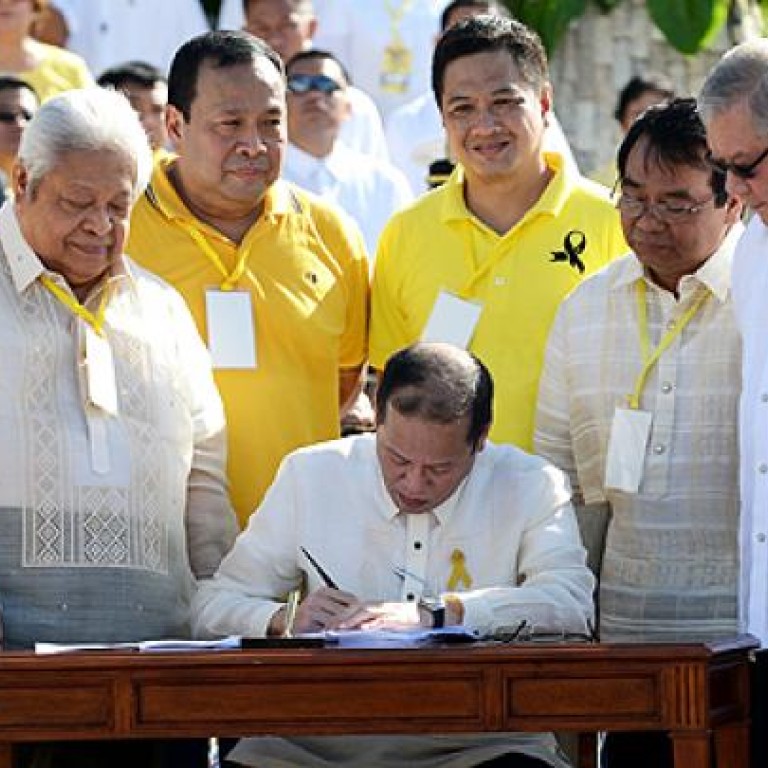
Philippines to compensate Marcos rights victims
Philippine President Benigno Aquino signed a landmark law on Monday compensating human rights victims of dictator Ferdinand Marcos, 27 years after a bloodless “People Power” revolution ended his reign.
Ten billion pesos (US$244 million) will be distributed to potentially thousands of people who were tortured, raped or detained, as well as relatives of those who were killed, by Marcos’s security forces during his 20-year rule.

Speaking at a ceremony in Manila to mark the anniversary, Aquino said the law was part of his government’s efforts to “right the wrongs of the past”.
We may not bring back the time stolen from martial law victims, but we can assure them of the state’s recognition of their sufferings
“We may not bring back the time stolen from martial law victims, but we can assure them of the state’s recognition of their sufferings that will help bring them closer to the healing of their wounds,” Aquino said.
Loretta Ann Rosales, an anti-Marcos activist who was tortured by his security forces and now heads the country’s independent rights commission, said the law would finally allow all his victims to feel a sense of justice.
“The law is essential in rectifying the abuses of the Marcos dictatorship and obliges the state to give compensation to all those who suffered gross violations of their rights,” Rosales told reporters.
Marie Hilao-Enriquez, the chairwoman of Selda, a group which represents Marcos rights victims, also welcomed the symbolic intent behind the law but said the money was too little to have a meaningful impact.

“There are so many victims that when you divide it to everyone it will not result to much,” Hilao-Enriquez said.
Hilao-Enriquez’s group represents about 10,000 documented victims but she said there were many more who had not been officially registered and may now come forward, such as Muslim communities in the remote south of the country.
Under the law, a “compensation board” will accept and evaluate applications for reparations over the next six months, according to Rosales.

The compensation money will come from about US$600 million the government has recovered from Swiss bank accounts that Marcos secretly maintained while he was in power.
The government has accused Marcos and his relatives of plundering up to US$10 billion and has so far recovered about US$4 billion.
Aquino’s mother Corazon led the “People Power” revolution that saw millions of people take to the streets and force US-government backed Marcos from power. He died in exile in Hawaii in 1989.
